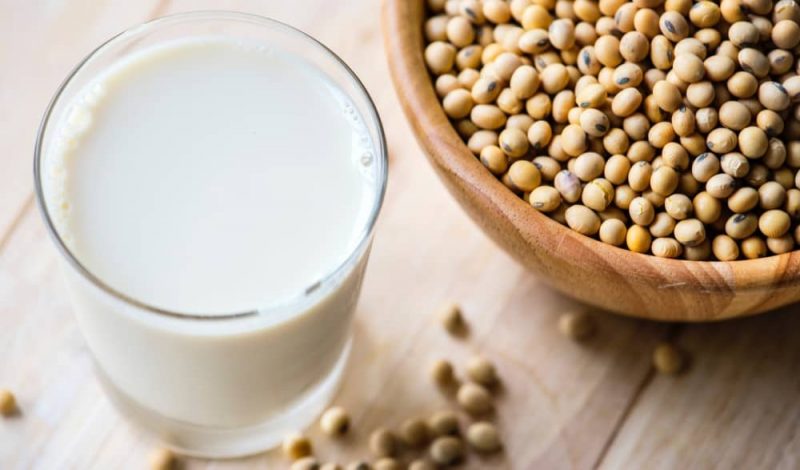With the right foods, you can boost your intestinal flora and strengthen your well-being. Sounds good?
Within this article, you will learn how probiotics affect your mood.
Some people go so far and claim that the intestine is our second brain because we rely on our gut feeling and not rational thinking.

Your colon takes up a 100 times larger surface than your skin and is about 5.5 to 7.5 meters long in an adult. It also has its own nervous system and includes a large number of intestinal bacteria and most of your immune system. 88% of your immune cells are in the gut.
No wonder then that the intestine has a strong influence on human well-being. It can connect with your brain through its complex nervous system and immune system, and is thus responsible for your mood and performance.
Take Home Message # 1: Your mood is greatly affected by your gut because it is constantly in contact with your brain.
What are Probiotics?
Intestinal bacteria have a direct influence on your mood and motivation.
The cranial nerve Nervus Vagus, which runs from the brainstem through the digestive system, most processes are regulated in the intestinal tract. So there is a direct link between the microorganisms in the gut and the central nervous system.
For good mood and full power, a healthy and natural intestinal flora (the totality of the microorganisms that colonize the intestine) is essential.
An imbalance in the intestinal flora can arise when the “good bacteria” in the intestine are destroyed and the “bad bacteria” take over. This can have many reasons. Stress, unhealthy eating and taking antibiotics are just three of them.
Probiotics can restore the balance in the gut. Have you never heard of probiotics? No problem!
Probiotics are viable microorganisms that are added to various foods. In most cases, lactic acid bacteria such as bifidobacteria and lactobacilli are used as probiotic cultures and added to foods. These also occur naturally in a healthy intestinal flora.
Probiotics can have health benefits if they enter the intestine in sufficient quantity to provide a majority of “good bacteria”.
Take-Home-Message # 2: Your intestinal flora has a strong positive influence on your mood and motivation, if “good bacteria” predominate in the intestine. With the help of probiotics, you ensure a healthy and natural balance in your intestinal flora.

How do Probiotics Work?
To get through the day full of energy, it is essential to eat probiotic foods.
As a rule, probiotic foods are fermented milk products. For example, yogurt, cheese and Co. contain high levels of probiotic bacterial cultures. For a probiotic effect, a certain number of probiotic bacteria must be present in the food.
Many foods are also naturally probiotic. For example, plain yogurt also contains a high number of probiotic bacterial cultures. So that your intestine can benefit from the probiotics in the long term, you must ensure a regular intake.
Take-home message # 3: To do your intestinal flora a favor, be sure to eat probiotic foods. There is a wide range of foods to which probiotic bacteria have been added, but also some that naturally contain a high number of probiotics. Generally, these should contain at least one million germs per gram.
Other Benefits of Probiotics
1. Probiotics can be helpful for indigestion.
Indigestion due to poor dietary habits and food intolerances can be remedied by daily use of probiotics. Also, complaints caused by intestinal diseases such as irritable bowel syndrome, inflammatory bowel disease, Crohn’s disease, and ulcerative colitis can be improved by probiotics.
2. Probiotics support the immune system
About 80% of the body’s total immune and defense cells are in the gut. If there is a disturbance of the intestinal environment through improper diet, medication, radiation or chemotherapy, the immune system can collapse quickly and general immune weakness is the result.
By regularly taking probiotics, the natural balance of the intestinal flora can be restored, which regenerates the immune system.
3. Probiotics can prevent cancer
Several studies have shown that regular use of probiotics can help prevent various cancers. In addition to the development of colorectal cancer, probiotics can also protect against the development of breast cancer and cervical cancer, according to a study from 2012.
It is believed that the development of cancer depends among other things on the health of our intestines.
4. Probiotics help against skin diseases, allergies, and asthma
Skin diseases, allergic reactions and also asthma often have their common cause in a diseased intestine or a disturbance of the intestinal flora.
A 2009 study showed that daily use of probiotics can strengthen the body’s defenses against allergic skin diseases and eczema.
Asthma is often caused by dysbacteria, colonization of the intestinal flora by pathogenic bacteria and pathogens. Again, probiotics can help to restore the intestinal flora and prevent the onset of asthma.

The Difference between Probiotics and Prebiotics
Watch out! Many confuse probiotics and prebiotics and do not know that they are clearly different.
While probiotics are living microorganisms that can promote digestion in sufficient quantities, prebiotics is a substrate that serves as a nutrient for the “good intestinal bacteria” to keep them alive and to multiply them.
Prebiotics are non-digestible food ingredients, which have a positive effect on microorganisms already in the gut. Pro- and prebiotics are both essential for a healthy intestinal flora and should be on the daily diet of a balanced diet.
Prebiotics are included in the following foods:
- artichokes
- garlic
- onion
- leek
- bananas
- probiotics
Foods that contain Probiotics
The term probiotic is Greek and means something like “for life”.
Here are some foods listed that are rich in probiotics:
- Bakery products
- yogurt
- cheese
- cereal
- fruit preparations
- certain drinks
As mentioned earlier, however, your weekly grocery shopping will also provide enough products that naturally contain a high proportion of probiotics:
- sourdough
- sour cucumbers
- kefir
- Miso (Japanese spice paste)
- Kombucha (Japanese tea beverage)
Generally, everything that is fermented, is good for your intestinal flora and contains a high proportion of lactic acid bacteria and thus also on probiotics. Actually, you can ferment any food and thereby increase the lactic acid bacteria in it, only some taste better than others.
For example, fermented vegetables are something that tastes very good to many. Fermentation describes the conversion of organic substances into acid, gases or alcohol.
Take-home message # 4: Particularly fermented foods contain a high proportion of probiotics because, during fermentation, sugar is converted into lactic acid.
Conclusion
Gut health is an important topic in my opinion. I can certainly agree, that gut health and mood are closely connected.
Therefore, I’d suggest you make sure that you include enough probiotics in your diet.
Probiotics will not only be beneficial for your mood but also your general health.
Cheers,
Sam




